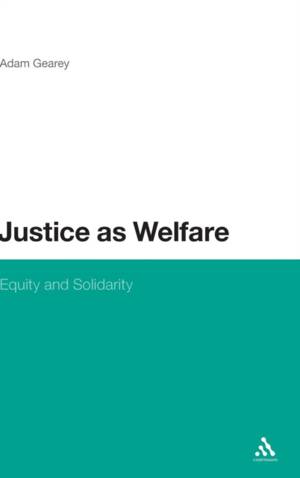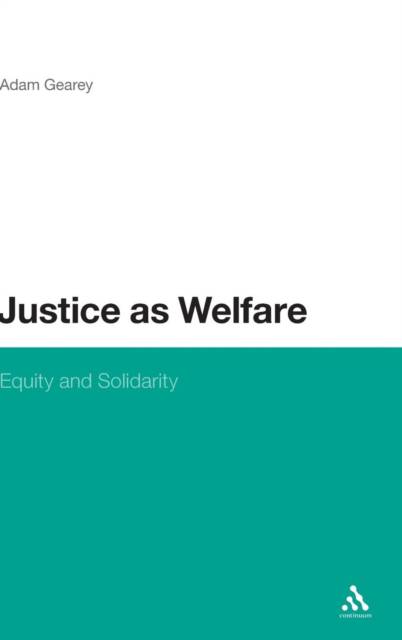
- Retrait gratuit dans votre magasin Club
- 7.000.000 titres dans notre catalogue
- Payer en toute sécurité
- Toujours un magasin près de chez vous
- Retrait gratuit dans votre magasin Club
- 7.000.000 titres dans notre catalogue
- Payer en toute sécurité
- Toujours un magasin près de chez vous
202,95 €
+ 405 points
Format
Description
Justice as Welfare provides an egalitarian account of distributive justice by rethinking notions of welfare. It first considers possible forms of decentered welfare to promote communal and individual autonomy rather than the bureaucratic, centralized market-oriented control. Next, it uses theoretical resources to rethink the conventional notions of solidarity that support welfare.
Drawing on recent work in continental philosophy, Justice as Welfare suggests that welfare requires a notion of social ontology. It provides both an account of the existential context of communal risk sharing and a framework to think about desire, value, and opportunity. Noting present political and economic realities, it suggests that international strategies to control 'flight capital' are necessary to create and maintain egalitarian welfare. Justice as Welfare aims to present a convincing theoretical account of welfare as social justice and to show how this requires the assertion of democratic control over economic and social reproduction at both national and international levels. This philosophically informed argument about egalitarian justice will appeal to anyone researching issues of social welfare, political theory, and applied political philosophy.Spécifications
Parties prenantes
- Auteur(s) :
- Editeur:
Contenu
- Nombre de pages :
- 272
- Langue:
- Anglais
Caractéristiques
- EAN:
- 9781441184412
- Date de parution :
- 02-02-12
- Format:
- Livre relié
- Format numérique:
- Genaaid
- Dimensions :
- 155 mm x 231 mm
- Poids :
- 539 g







